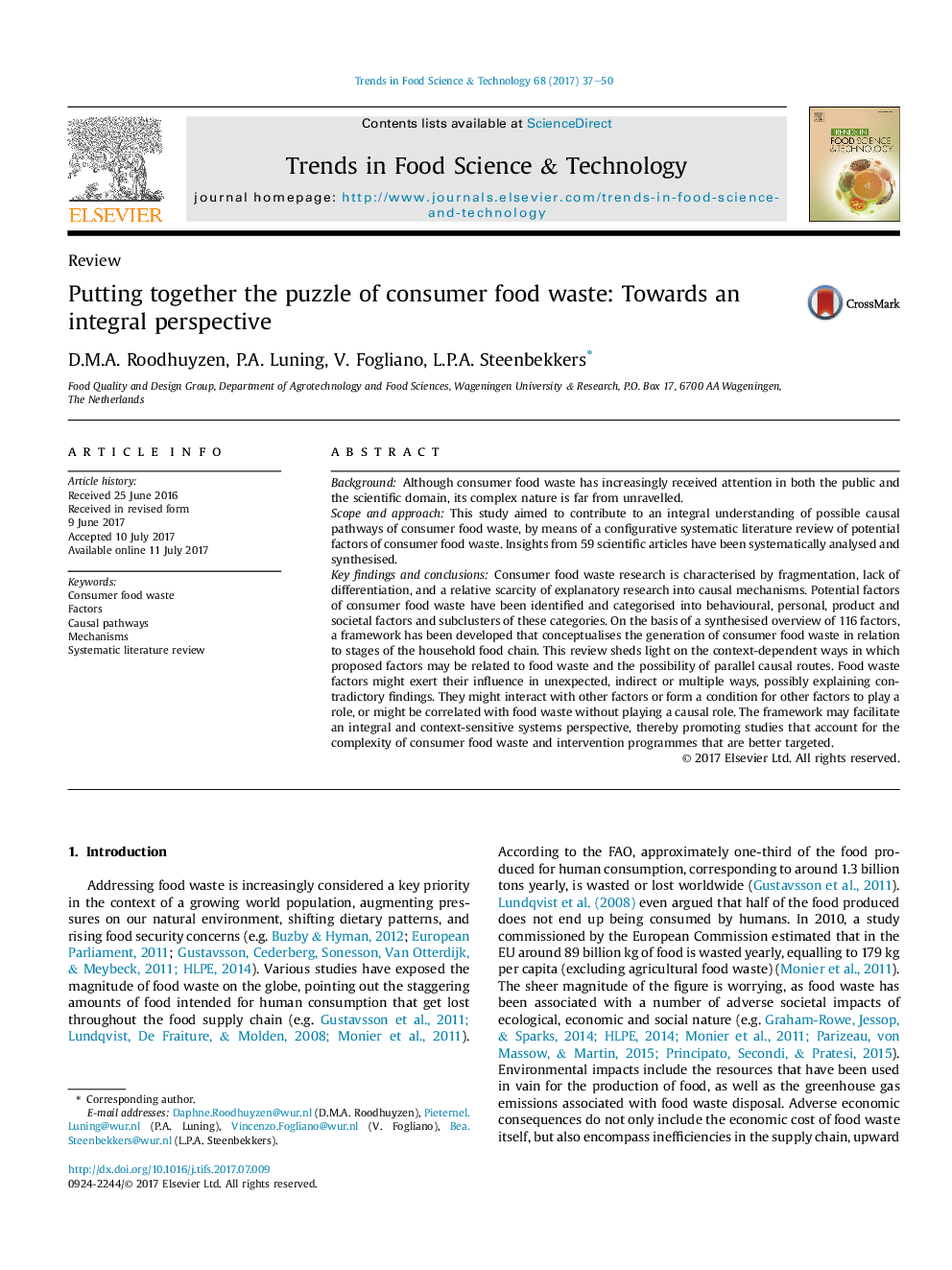| Article ID | Journal | Published Year | Pages | File Type |
|---|---|---|---|---|
| 5523622 | Trends in Food Science & Technology | 2017 | 14 Pages |
â¢A comprehensive overview of potential factors of consumer food waste was synthesised.â¢Explanatory research into causal mechanisms of consumer food waste is lacking.â¢The conceptual framework distinguishes different dimensions and system levels.â¢Factors might exert their influence in unexpected, indirect or multiple ways.â¢The framework supports an integral and differentiated approach in research and practice.
BackgroundAlthough consumer food waste has increasingly received attention in both the public and the scientific domain, its complex nature is far from unravelled.Scope and approachThis study aimed to contribute to an integral understanding of possible causal pathways of consumer food waste, by means of a configurative systematic literature review of potential factors of consumer food waste. Insights from 59 scientific articles have been systematically analysed and synthesised.Key findings and conclusionsConsumer food waste research is characterised by fragmentation, lack of differentiation, and a relative scarcity of explanatory research into causal mechanisms. Potential factors of consumer food waste have been identified and categorised into behavioural, personal, product and societal factors and subclusters of these categories. On the basis of a synthesised overview of 116 factors, a framework has been developed that conceptualises the generation of consumer food waste in relation to stages of the household food chain. This review sheds light on the context-dependent ways in which proposed factors may be related to food waste and the possibility of parallel causal routes. Food waste factors might exert their influence in unexpected, indirect or multiple ways, possibly explaining contradictory findings. They might interact with other factors or form a condition for other factors to play a role, or might be correlated with food waste without playing a causal role. The framework may facilitate an integral and context-sensitive systems perspective, thereby promoting studies that account for the complexity of consumer food waste and intervention programmes that are better targeted.
